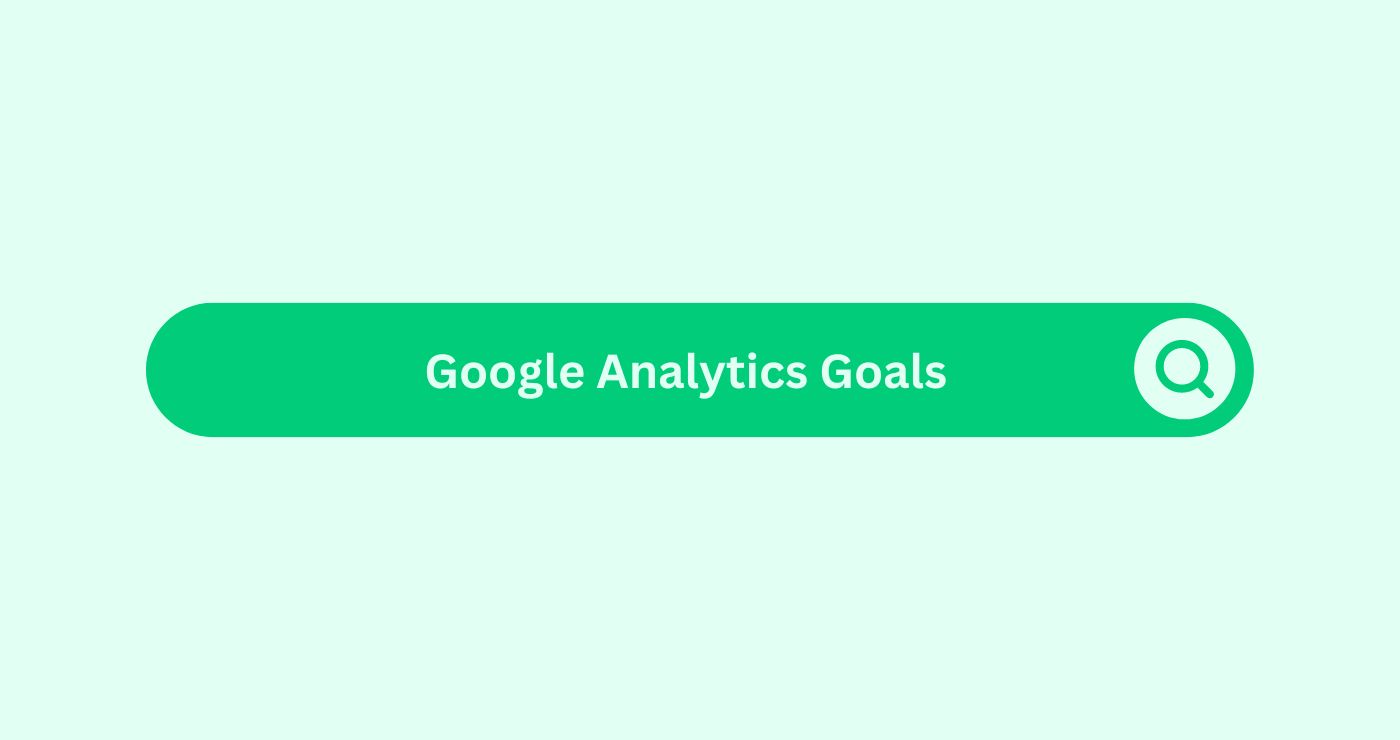Definition
Google AnalyticsDefinition In SEO, analytics involves collecting, measuring,... GoalsIn the SEO space, "Goals" refer to specific, measurable obje... are specific metricsWhat are Metrics in the context of SEO? Metrics in SEO refer... used to measure how well your website fulfills targeted objectives. These goalsIn the SEO space, "Goals" refer to specific, measurable obje... can be anything from making a purchase, signing up for a newsletterDefinition A newsletter in email marketing is a regularly di..., downloading a brochure, or spending a certain amount of time on a page. Setting up goalsIn the SEO space, "Goals" refer to specific, measurable obje... allows businesses to track and analyze the actions visitors take on their website, providing valuable insights into user behavior and the effectiveness of their online strategies.
How You Can Use Google Analytics Goals
Example
Suppose you run an online education platform offering various courses. You want to track how many visitors sign up for a free trial of your courses. By setting up a Google AnalyticsDefinition In SEO, analytics involves collecting, measuring,... Goal for the trial sign-up page, you can monitor how many users complete this action.
To set up this goal, you would go into your Google AnalyticsDefinition In SEO, analytics involves collecting, measuring,... accountDefinition In SEO, an Account refers to systematically manag..., navigate to the Admin section, and under the View column, click on GoalsIn the SEO space, "Goals" refer to specific, measurable obje.... From there, you can create a new goal and select a template or custom goal. You would then specify the details, such as the destination URL (e.g., the thank-you page after a sign-up), and assign a value to this goal if needed. Once set up, Google AnalyticsDefinition In SEO, analytics involves collecting, measuring,... will track every time a visitor reaches the specified URL, giving you precise data on sign-up conversions.
Calculation Methods
Google AnalyticsDefinition In SEO, analytics involves collecting, measuring,... GoalsIn the SEO space, "Goals" refer to specific, measurable obje... can be calculated using different metricsWhat are Metrics in the context of SEO? Metrics in SEO refer... based on the type of goal set. For instance:
- Destination GoalsIn the SEO space, "Goals" refer to specific, measurable obje...: Track the number of times a specific URL is visited. Goal Completions=Number of Visits to the Destination URL
- Duration GoalsIn the SEO space, "Goals" refer to specific, measurable obje...: Measure the number of sessions that last a specified amount of time or longer. Goal Completions=Number of Sessions≥Specified Duration
- Pages/Screens per Session GoalsIn the SEO space, "Goals" refer to specific, measurable obje...: Track sessions that view a specific number of pages or screens. Goal Completions=Number of Sessions≥Specified Pages/Screens
- Event GoalsIn the SEO space, "Goals" refer to specific, measurable obje...: Measure the actions users take, such as downloads or video plays.
Goal Completions=Number of Triggered Events
Key Takeaways
- Track Key MetricsWhat are Metrics in the context of SEO? Metrics in SEO refer...: Monitor specific user actions that align with business objectives.
- Measure Success: Determine how well your website meets your business goalsIn the SEO space, "Goals" refer to specific, measurable obje....
- Improve User Experience: Gain insights into user behavior to enhance site functionality.
- Optimize Marketing Efforts: Adjust marketing strategies based on goal completion data.
- Data-Driven Decisions: Make informed decisions with precise goal-tracking data.
FAQs
What are Google Analytics Goals?
Google AnalyticsDefinition In SEO, analytics involves collecting, measuring,... GoalsIn the SEO space, "Goals" refer to specific, measurable obje... are metricsWhat are Metrics in the context of SEO? Metrics in SEO refer... used to measure the success of specific actions users take on your website, such as purchases or sign-ups.
How do you set up a Google Analytics Goal?
You set up a goal by navigating to the Admin section in Google AnalyticsDefinition In SEO, analytics involves collecting, measuring,..., selecting GoalsIn the SEO space, "Goals" refer to specific, measurable obje... under the View column, and creating a new goal with the desired criteria.
Why are Google Analytics Goals important?
They help track the effectiveness of your website in achieving business objectives and provide insights into user behavior.
What types of goals can you create in Google Analytics?
You can create Destination, Duration, Pages/Screens per Session, and Event goalsIn the SEO space, "Goals" refer to specific, measurable obje....
How do you calculate goal conversions?
Goal conversions are calculated based on the specific type of goal, such as the number of visits to a destination URL or the number of sessions lasting a specified duration.
Can you assign a monetary value to a Google Analytics Goal?
Yes, you can assign a monetary value to goalsIn the SEO space, "Goals" refer to specific, measurable obje... to estimate the financial impact of user actions.
How can Google Analytics Goals improve SEO?
By tracking user actions that indicate engagementDefinition Engagement in content marketing refers to the deg... and success, you can optimize your content and marketing strategies for better SEO performance.
What is a conversion rate in Google Analytics?
The conversion rateDefinition Conversion Rate in the SEO space refers to the pe... is the percentage of sessions that resulted in goal completions, calculated as: Conversion Rate=(Goal Completions / Total Sessions)×100Conversion Rate=(Total Sessions / Goal Completions)×100
Can you track multiple goals in Google Analytics?
Yes, you can track multiple goalsIn the SEO space, "Goals" refer to specific, measurable obje... simultaneously, each representing a different user action.
How often should you review your Google Analytics Goals?
Regularly review your goalsIn the SEO space, "Goals" refer to specific, measurable obje..., at least quarterly, to ensure they align with your current business objectives and user behavior trends.
By understanding and leveraging Google AnalyticsDefinition In SEO, analytics involves collecting, measuring,... GoalsIn the SEO space, "Goals" refer to specific, measurable obje..., businesses can gain valuable insights into their website's performance, optimize user experience, and drive more effective marketing strategies.




